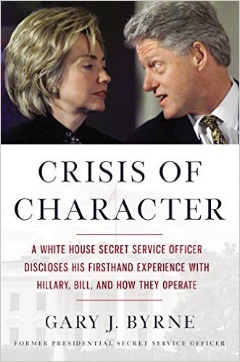taantumu
Ylipäällikkö
Oikeusministeri Sessionsin alaiset kyselivät kongressin henkilökunnalta törkyä Comeysta ennen tämän potkuja, tarkoituksena oli saada negatiivisia uutisia FBI:n johtajasta. Sessions oli tuossa vaiheessa jo jäävännyt itsensä Venäjä-tutkinnoista ja yritykset käydä Comeyn kimppuun olivat yritys lopettaa tutkinta.
https://www.washingtonpost.com/news...ia-trump-and-sessions/?utm_term=.d096d6a79023Here's what the Times wrote:
The New York Times has also learned that four days before Mr. Comey was fired, one of Mr. Sessions’s aides asked a congressional staff member whether he had damaging information about Mr. Comey, part of an apparent effort to undermine the F.B.I. director. It was not clear whether Mr. Mueller’s investigators knew about this episode. ...A Justice Department spokeswoman, Sarah Isgur Flores, flatly denied it. “This did not happen and would not happen,” she told the Times. “Plain and simple.”
Two days after Mr. Comey’s testimony [saying the Russia investigation was ongoing], an aide to Mr. Sessions approached a Capitol Hill staff member asking whether the staffer had any derogatory information about the F.B.I. director. The attorney general wanted one negative article a day in the news media about Mr. Comey, according to a person with knowledge of the meeting.
But if it is true, it presents a wholly new subplot — and potentially a whole new front — in the Russia investigation.
Given Trump's conduct in repeatedly trying to influence the direction of the investigation, the fact that he sent White House counsel Don McGahn to try to prevail upon Sessions not to recuse himself isn't hugely surprising. It fits a crystal-clear pattern. That doesn't mean it's not significant; it's just that it's the latest piece of a familiar narrative.
To this point, though, Sessions's relationship to the Russia probe has largely been about his apparent principled decision to recuse himself — a decision that we already knew Trump didn't like, because Trump has said so publicly. Sessions also recently shut down a GOP congressman's conspiracy theory about how the Russia probe came about.
But this new Times report suggests Sessions may not have been such a Boy Scout. In fact, it says that he played a role in trying to undermine Comey at a time when it was apparently well-known inside the Trump administration that Trump wanted to fire the FBI director.
It also reportedly happened at a time, importantly, when Sessions was already recused from the Russia investigation. Sessions recused himself on March 2, and the meeting between the Sessions aide and the congressional aide occurred on May 5.
There are two inescapable questions here, beyond the obvious one of how accurate the report is. The first question is: Why would Sessions pursue such a course, and was it was at Trump's urging? We know Trump wanted to fire Comey because he did it four days later. It's possible Sessions (or even his aide) were freelancing here, but we simply don't know.
And the second is: What does it say about Sessions's larger role in all of this? If this aide was acting at Sessions's urging and Sessions was acting to help Trump — which is a pretty inescapable conclusion here — it suggests Sessions isn't so isolated from all of this as we thought he was. It suggests his recusal wasn't so much a principled decision as something he did because the pressure to do so was simply too much.


